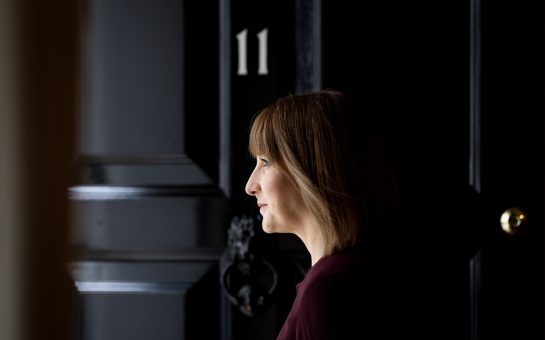Manchester Central Labour MP Lucy Powell has expressed concern at the number of employees from financial service companies being given ‘privileged access’ to the inner-workings of the Financial Conduct Authority.
One hundred employees from private financial service companies were ‘lent’ to the UK’s main financial regulator, the FCA, in the first 15 months of it’s operation, reveal figures obtained under the Freedom of Information Act.
More than 60 companies, including PWC, KPMG and ParkerFitzgerald, provided staff free of charge to the FCA which is responsible for regulating UK financial markets and protecting consumers.
Mrs Powell described the figures as ‘concerning’ and suggested this is a situation that could be taken advantage of by the secondees for their private sector clients.
She said: “The number of people on secondment from the big four accountancy firms in both government and the regulators for short periods is concerning.
“It’s vital that the people on secondment do not take advantage of the privileged access they gain to help their employers private sector clients.”
Campaigners for a fairer financial system say the secondments are evidence of a cosy relationship between regulators and big companies, which is open to abuse.
Fionn Travers-Smith, of the Move Your Money campaign, explained that honest brokerage between the financial sector and members of the public is not being achieved if consumer groups ‘do not get a look in’ but private firms do.
“The FCA is supposed to be an honest broker between the financial sector and citizens, yet civil society and consumer groups do not get a look in,” she told MM.
“Given the constant slew of scandals in the banking sector…it’s easy to see why a revolving door between the regulator and the regulated is eroding public trust.”
The FCA replaced the Financial Services Authority as the UK’s main financial services and consumer regulator in 2013.
According to their website they aim to ‘protect consumers, ensure our industry remains stable and promote healthy competition between financial services providers’.
The FCA has had 100 secondments from outside organisations, 82 of which were from private companies, while only five were from groups representing consumers interests, between April 2013 and July 2014.
The regulating body denies that it has a cosy relationship with these companies and says that secondments are used to provide regulators with the outside expertise they need.
A spokesperson said: “It is essential that the FCA remains in touch with the companies it regulates.
“Secondments provide value for money, as they are cost effective way of securing high quality resource for particular roles.”
Although many of the companies who sent staff on secondment are not directly regulated by the FCA, most make money advising their clients on how to comply with the FCA’s regulations.
Deloitte, who have provided five staff secondments since 2013, state on their website that ‘the group is well-versed in steering regulations to the best advantage of our clients’.
While the law firm Sidley Austin, who also lent the FCA staff, state they are ‘dedicated to representing our clients’ interests in the rulemaking process’.
An FCA spokesperson said that they were ‘satisfied that the arrangements we have in place to identify any actual or potential conflicts of interest are satisfactory’, adding that all secondees must sign a code of conduct agreement and confidentiality agreement before beginning allowed to work at the regulator.
However, when pressed the same spokesperson admitted that these agreements were not intended to ‘prevent the secondee from using the benefit of the secondment on their return to [their employers] firm’.
A 2013 Public Accounts Committee investigation into similar arrangements between accountancy firms and HMRC, found that when some secondees finished advising government they went on to ‘advise their clients on how they can reduce the amount of tax they pay’.
Original images courtesy of Iman Mosaad and UsdawUnion, via YouTube, with thanks.



